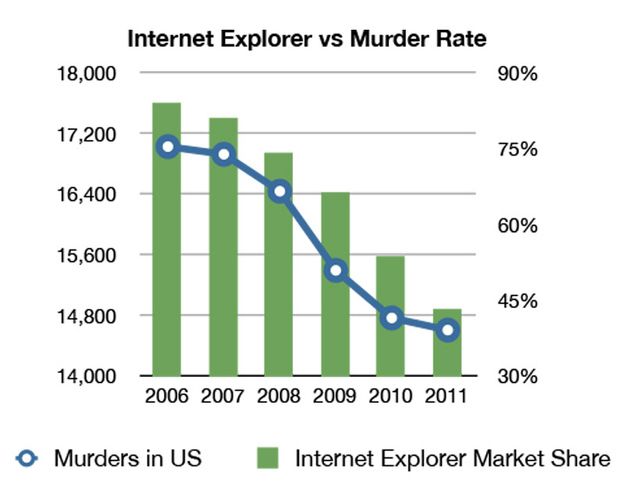funded by Bloomberg, not peer reviewed, and very flawed. Like the claims about Australia, it cherry picks years and lies by omission. While it is true the murder rate rose by 17 percent in the five years after the repeal in 2007, he forgot to mention that Missouri's murder rate increased 32 percent during the previous five years. One could just as easily argue that repealing the slowed the growth of the murder rate. Not only is this an example of card stacking, it is also post hoc ergo propter hoc.
Federal death data released this month for 2014 showed a continuation of the trend, he said. Before the repeal, from 1999 to 2006, Missouri’s gun homicide rate was 13.8 percent higher than the national rate. From 2008 to 2014, it was 47 percent higher. (The new data also showed that the national death rate from guns was equal to that of motor vehicle crashes for the first time since the government began systematically tracking it.)
Yet the gun homicide rate is often lower in places like Wyoming and Vermont than, say, New Jersey and Chicago. Why do you think why that is? Wyoming's gun to other weapon ratio is about half. Chicago's is in the high 90s percentile. Probably because Chicago's is mostly gangs killing each other, where gun laws are about as effective as gun laws.
last year, lowering the legal age to carry a concealed gun to 19. What has followed may help answer a central question of the gun control debate: Does allowing people to more easily obtain guns make society safer or more dangerous?
Were there a rash of murders committed by 19-21 year old CCW holders? If so, would they have left the gun home without the permit and used another weapon or be deterred? If the answers are "no" to either of these questions, how would one have anything to do with the other?

 = new reply since forum marked as read
= new reply since forum marked as read
